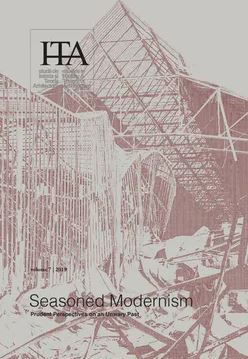Reflexive Modernism and Weak Thought
Reflexive Modernism and Weak Thought
Author(s): Cosmin CaciucSubject(s): Architecture, Recent History (1900 till today), Hermeneutics
Published by: Universitatea de Arhitectură şi Urbanism »Ion Mincu«
Keywords: reflexive Modernism; weak thought; pragmatism; hermeneutics; conceptual historiography;
Summary/Abstract: Modernism in the first half of the last century was dominated by the question of meaning in architecture as an oscillation between the deterministic discourse of functional-constructive rationality (architecture as pure engineering, scientifically justified) and the discourse of artistic subjectivism (architecture as pure art, eminently justified by individual aesthetic genius). Ideology centered on technical science, social emancipation and artistic freedom, archived in anthologies edited by Ulrich Conrad, John Peter, and Joan Ockman, became the target of the counter-ideological discourses irrigated by the whole spectrum of European and American post-war philosophy in the anthologies edited by Kate Nesbitt, Neil Leach, Charles Jencks & Karl Kropf, and K. Michael Hays, where we come in contact not only with a critique of contemporary architectural practice but also with a competition between philosophical discourses which offer architecture inspiration and specific theoretical instruments at the base of this critique: phenomenology, structuralism, poststructuralism, semiotics, pragmatism or neo-Marxist critical theory. The conflict of interpretations concerning such diverse perspectives raises metaphilosophical problems regarding the interpretation of modernity. Reflexive Modernism is recognized in this conflict as a medium of communication between unstable meanings, without the pretense of being determined by science or art, focusing on context, history, community, and transformations of contemporary philosophy. Between these transformations, the so-called weak thought as a cultural metaphor describing the predisposition of a group of contemporary Italian thinkers led by Gianni Vattimo, with which the American pragmatist philosopher Richard Rorty resonates, has also drawn our attention. The weak thought reflects on modernity in a primarily anti-fundamentalist, non-relativist and pluralistic way. Anti-fundamentalism implies relinquishing the scientific and rationalist foundations of the interpretation of reality. Non-relativism appears as a therapeutic notion of thinking capable of counteracting relativism in the consumerist society and global superficial culture. Pluralism is articulated by cultural opening and criticism of segregation between elitist and mass culture. These aspects encourage decentralized and contextual cultural practices, open to a wider spectrum of meanings.
Journal: sITA – studii de Istoria şi Teoria Arhitecturii
- Issue Year: 2019
- Issue No: 7
- Page Range: 39-54
- Page Count: 16
- Language: English

